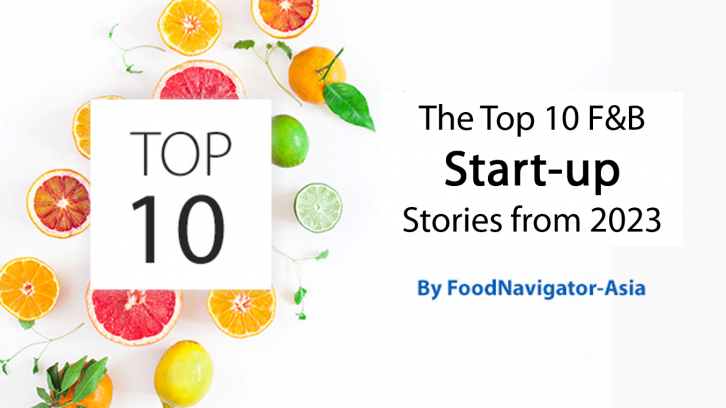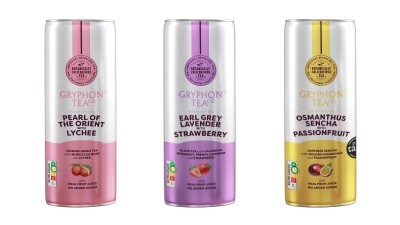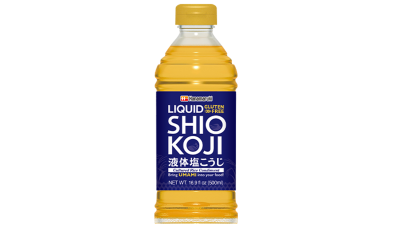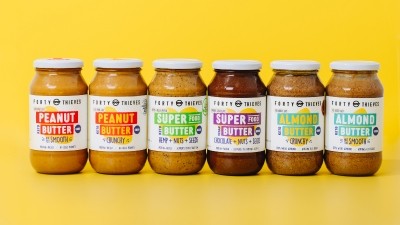Start-ups focus: The Top 10 APAC food and beverage start-up and entrepreneurial stories from 2023

More than a ‘glorified TV dinner’: Australia’s The Mad Foodies translates research into low-carb, high-protein RTE meals
Australia-based brand The Mad Foodies has highlighted aims to satiate growing demand for ready meals that are not only convenient and tasty, but also infused with science-backed nutritional benefits.
Years of extensive research by Commonwealth Scientific and Industrial Research Organisation (CSIRO), Australia’s national science agency, led to the development of the CSIRO Low-Carb Diet, an evidence-based eating plan that is lower in carbohydrates, and higher in protein and healthy fats.
The findings were published in a book series that serve as a self-guide — including a range of recipes and meal suggestions — for consumers to learn how to implement the Low-Carb Diet in their daily lives.
“While the CSIRO Low-Carb Diet has been clinically proven to be highly effective in sustaining long-term weight loss and blood glucose control, there remained a gap in the market for those wanting a healthy eating option without having to cook from scratch,” Xenia Cleanthous, senior experimental scientist and project lead for the CSIRO Pre-prepared Meals Programme, told FoodNavigator-Asia.
‘Healthier and more experimental’: Indian brewery Bira 91 lifts the lid on consumer trends guiding innovation
Delhi-headquartered brewery Bira 91 detailed how consumer demands for ‘healthier and more experimental’ products are guiding its innovation strategy, while also revealing plans for a ‘premium’ Indian beer.
It received funding of USD$10m from Japan’s MUFG bank and USD$70m from brewery giant Kirin earlier this year, which were channelled towards expanding its production capacity and distribution networks domestically and globally.
Its founder and CEO, Ankur Jain, said that its partnership with Kirin extends beyond funding to capitalise on Kirin’s industry expertise to both “premiumise Indian beer through innovation” and “drive sustainability in the industry.”
Australia’s All G Foods scales up for debut of precision fermented proteins in Singapore by end-2024
Sydney-based precision fermentation firm All G Foods doubled down on R&D and consumer insights research to complete its first finished product, with an eye on the APAC, Middle East and US markets.
With the world’s population projected to reach nearly 10bn by 2050, the planet “simply does not have the resources” to provide food for all its human inhabitants, opined Roman Buckow, Chief Technology Officer of All G Foods.
“We saw an opportunity to take the best that nature has to offer — in terms of cow’s protein — and complement it with science and cutting-edge technology to develop cultured dairy proteins via precision fermentation. The goal is to bring high-quality and tasty Australian-made dairy products to local and global consumers,” Buckow told FoodNavigator-Asia.
Advancing agritech: Sustenir makes foray into precision agriculture with GABA gains
Singapore indoor vertical farming firm Sustenir took its first steps into precision agriculture earlier this year by increasing levels of gamma-aminobutyric acid (GABA) in its kale.
Sustenir built indoor vertical farming infrastructure using hydroponics technology and a controlled environment agriculture (CEA) system.
“The infrastructure allows us to ‘grow more with less’. We are able to grow a good quantity of fresh produce with less space and water, and without the use of pesticides, right in the heart of supercities,” Jack Moy, CEO of Sustenir Group, told FoodNavigator-Asia.
Going bananas? Why Indian firm Beyond Snack believes banana chips can peel off potato market
Indian firm Beyond Snack mapped out expansion plans both in the country and globally earlier this year as part of an ambitious move to see banana chips outstrip sales of potato-based products.
According to Beyond Snack, the global banana chips market could be worth a minimum of US$10bn in the next five to eight years if industry players “do the game right”.
“At the moment, potato chips are still king in the savoury snacks category. But globally, we see that potato-chip sales are in the early stages of decline due to growing negative sentiment. People are on the lookout for alternatives to potato chips, and banana chips have great potential because they are considered to be healthier.
“Potato chips had transited from an unorganised to an organised sector many years ago. What we are working towards is to revolutionise the banana chips sector in a similar way, and turn it into one of the biggest savoury snack categories around the world,” Manas Madhu, founder of Beyond Snack, told FoodNavigator-Asia.
‘Huge growth potential’: India’s ProV Foods seeks to combine affordability and health benefits to gain snack market share
Indian dried fruits and snack brand ProV foods told us earlier this year that affordability is key for better-for-you brands to take a bigger slice of the country’s rapidly developing snack market.
India’s snacks industry is worth close to US$8bn, yet the healthy snacks segment makes up less than 10% of the overall market.
Headquartered in Mumbai, ProV Foods is one of the fastest-growing healthy snacks brands in the country, with more than 100 products across six sub brands that cater to varied consumer demands and purchasing power. The firm has partnered with FMCG industry veteran KS Narayanan and celebrity chef Sanjeev Kapoor, an icon in the Indian food scene, to establish a stronger foothold in the healthy snacks space.
Nearly all dried fruit products in India are imported. ProV Foods source high-quality almonds, walnuts, raisins and pistachios from growers across the globe, while its products are processed in its own plant.
On the churn: Singaporean cultured butter start-up sees growth potential by capitalising on Asian flavours
Higher purchasing power and heightened awareness of conscious consumption mean there is considerable scope to grow the artisanal butter market in Singapore, a start-up that is innovating with a range of Asian flavours said earlier this year.
Having experienced “farm-to-table” first-hand on a trip to Tasmania and noticing a gap in the Singaporean market for locally made artisanal products, cultured butter business Atas Butter was created as Founder Daryl Yeo's brainchild, started as a home-based business and then moving into its own premises to cater for increasing orders.
“We are seeing a changing customer base. People really care more about the stories and the narrative on the source of their foods. And I think they are happy to pay a premium for that experience,” Yeo told FoodNavigator-Asia.
‘2028 to reach cost parity’: Steakholder Foods targeting food firm partnerships as it eyes 3D cultivated meat printing commercialisation
3D printed cultivated meat firm Steakholder Foods has highlighted its target to cost parity with conventional products by 2028, while also exploring new partnerships to boost its 3D printing capabilities in hopes of fully commercialisation next year.
It has debuted a ready-to-cook cultivated grouper fish product – utilising grouper cells provided by its Singapore counterpart Umami Meats – at a tasting event in Israel.
Speaking to FoodNavigator-Asia, Steakholder Foods’ co-founder and CEO Arik Kaufman explained that the firm wanted to expand its portfolio to demonstrate its capabilities in both 3D printing diversified species, and partnering with different industry players – spanning cultivated meat start-ups to larger, traditional meat or fish producers.
Soy story: Singapore start-up reveals commercialisation and partnership plans for upcycled foods from soy waste
Singapore food tech firm SoiLabs has highlighted aims to launch finished products made from soy waste (okara) and a partnership with Sanyo Chemical to accelerate commercialisation of upcycled foods in Japan.
Established in 2022 under foodtech investor Hafnium Ventures, the Singapore-based company specialises in its okara conversion technology to produce a protein-rich intermediate, known as Soi-X, used in plant-based cheese products.
FoodNavigator-Asia previously published about its upcycling technology and the growth potential of okara in the plant-based market.
SoiLabs raised SGD$500,000 (USD$370,000) earlier this year in a seed funding round backed by Sanyo Chemical and Hafnium Ventures, and entered a MoU with the former to develop the business in Japan and on end product applications.
Tradition with a twist: How Philippines’ plant-based pioneers are infusing health and localisation to stand out
Plant-based brands in South East Asia need to step up their game by integrating unique health and localisation features to stand out in the increasingly crowded market, a Philippines brand blazing a trail in the sector told us earlier this year.
Although many food firms have been quick to join the plant-based bandwagon in the ASEAN region, it is one thing to be part of the industry, but another entirely to stand out in a sector that has seen such immense growth over the past few years and is tipped to grow a further 25% by 2025.
For Philippines plant-based pioneer WTH Foods, the firm has integrated added health and localization elements into its product development in order to differentiate itself from the crowd.
“The localisation element is very important as many western brand offerings are not applicable to the ASEAN behaviour or palate – very few people in the Philippines eat things like American-style burger patties and sausages daily,” WTH Foods Founder and CEO Stephen Michael Co told FoodNavigator-Asia.















